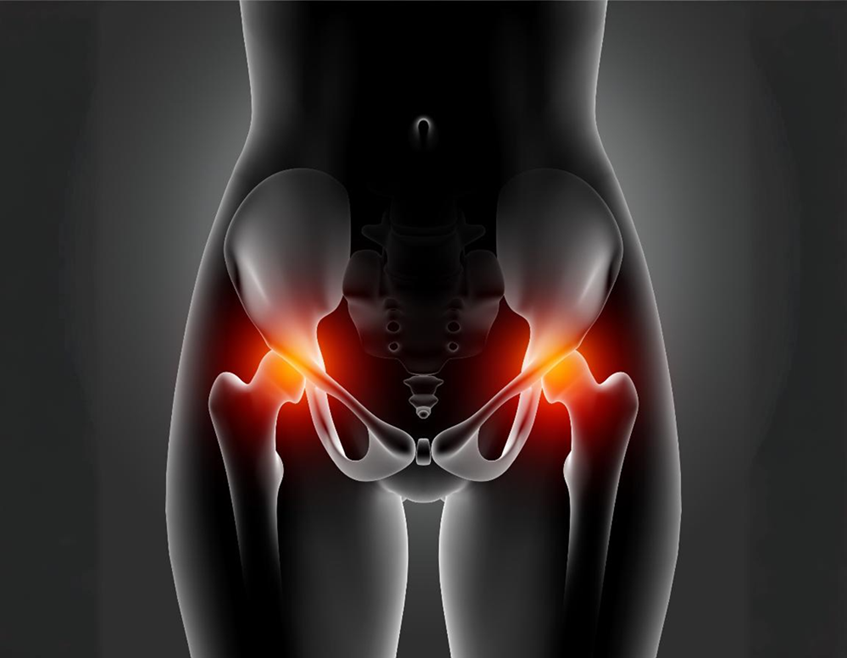Hip pain is more common than you think. It can make walking or even sitting hard.
Hip replacement surgery is an option for those who just can’t find relief any other way. Let’s break down what this surgery involves.
Causes of Hip Pain
Your hip is a ball-and-socket joint. The ball is at the top of your thigh bone. The socket is a part of your pelvis. These parts are covered with cartilage, helping the joint move smoothly.
Sometimes, this cartilage wears out or gets damaged. Why? It could be due to age, injuries, or arthritis. Without cartilage, bones rub directly where they meet. This creates pain and stiffness.
There are various reasons for hip pain: – Arthritis: This is when your joint is inflamed. It can wear down the hip joint. – Injuries: Falls or accidents may lead to fractures or damage the hip. – Overuse: Activities that keep stressing the hip can lead to joint problems over time.
Exploring the Different Types of Hip Replacement Surgery
When other treatments fail, hip replacement surgery might be the right step. But did you know there are different types of hip replacement surgery?
- Total Hip Replacement: This is the most common. Doctors replace both the ball and socket.
- Partial Hip Replacement: Only the ball is replaced. This is common after a fracture.
- Minimally Invasive Hip Replacement: This uses small cuts, aiming for faster healing.
Deciding which one is right depends on your specific needs and doctor’s advice.
Who Needs Hip Replacement Surgery?
Are you feeling burdened by hip pain daily? If regular activities become hard, it might be time to think about hip replacement surgery.
Indications for Surgery: Symptoms to Watch For
So, how do you know if surgery’s right for you? Here are some signs:
– Stiffness: Does your hip feel stuck?
– Pain: Is it keeping you awake or stopping you from doing things you love?
– Reduced Movement: Are you avoiding walks or stairs because of pain?
If you said yes to these, a doctor might suggest surgery.
The Orthopaedic Evaluation Process
Your first step is a visit to an orthopedic doctor. They’ll check your hip’s range of motion and the pain’s impact. Treatment options vary, but when all else fails, surgery may come up. Here’s what you might expect:
- X-rays or MRI: These scans reveal the real cause behind the pain.
- Physical Tests: You’ll go through simple exercises to see how well your hip works.
- Discussion of Health History: Your past injuries or conditions can affect your treatment.
After these steps, your doctor discusses if surgery is the best move.
Preparing for and Undergoing Hip Replacement Surgery
Getting ready for hip replacement surgery might feel overwhelming. But with the right preparation, you can make it less stressful.
Steps for Making an Informed Decision
Before jumping in, make sure to collect all the facts:
– Research: Understand what happens during surgery and hip replacement recovery tips.
– Ask Questions: What’s the best types of hip replacement surgery for you?
Ask your doctor. – Seek Second Opinions: Two doctors are better than one when making big medical decisions.
What to Expect During Surgery Day
On the big day, stay calm. Here’s what to anticipate:
- Arrive Early: Hospitals need time to prep you.
- Anesthesia: You’ll be asleep to avoid discomfort during surgery.
- Surgery Time: It usually lasts a few hours.
- Recovery Room: Expect to wake up here before moving to your own room.
Knowing this process can ease any nerves.
Postoperative Care and Recovery
Once hip replacement surgery is done, recovery is crucial. The right care speeds up healing.
Tips for a Successful Recovery
Keep these hip replacement recovery tips in mind:
- Follow Doctor’s Orders: Stick to their advice, especially about movements and rests.
- Physical Therapy: Regular exercises will help regain strength.
- Take It Slow: Don’t rush walking or other activities.
Understanding the Risks and Potential Complications
Like all surgeries, this one isn’t without risks. Let’s understand some possible problems:
- Infection: Though rare, it’s something to watch.
- Blood Clots: Movements and medication help prevent clots.
- Dislocation: Avoid specific movements that could harm a new joint.
To wrap it up, making informed decisions and following expert guidance can ensure a smooth journey back to health.
Whether you’re preparing for hip replacement surgery or navigating the recovery phase, being well-informed is key. With the right steps and a positive outlook, a pain-free future is within reach.
Consult NeoTru North Hospital today for personalized care and expert support on your recovery journey!



